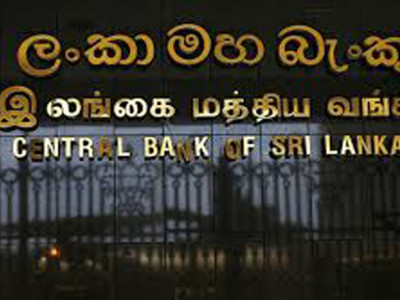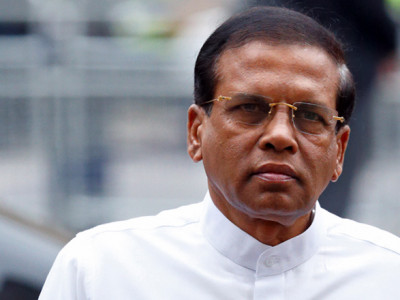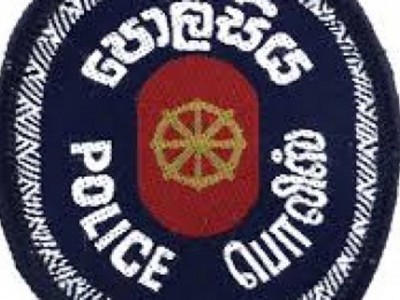(COLOMBO, LANKAPUVATH) –President Gotabaya Rajapaksa taking part in the video conference among leaders of the South Asian Association for Regional Cooperation (SAARC) yesterday suggested that the regional body formulate a mechanism to assist neighboring economies, which have been dealt a severe blow due to COVID-19, to stay afloat during this difficult period.
“Several travel advisories had been sent out and because of the many travel restrictions, our economy has taken a severe blow due to concerns over the spread of the COVID-19, particularly our tourism sector,” President Rajapaksa told the leaders of the eight-member regional bloc who gathered together for a video conference under the theme of “SAARC Leaders on Combating COVID – 19, Setting an Example to the World” yesterday evening, convened by Indian Premier Narendra Modi.
“Most of our tourists are from Italy and other European Union countries, as of now there is a travel advisory as well as travel restrictions. This has come at a time when our tourism industry was recovering after the April attacks. I therefore strongly recommend that we formulate a mechanism to assist our economies to carry forward during this difficult period.”
President Gotabaya Rajapaksa also recommended that a ministerial level group be set up among SAARC countries so that they may discuss and coordinate regional matters more effectively and efficiently.
The video conference was initiated by Indian Premier Narendra Modi to collectively formulate a strong strategy to combat the COVID-19 outbreak. The SAARC joint video conference comes a day ahead of a similar ‘virtual conference’ convened by France for members of the G7 countries.
President Rajapaksa whilst thanking Indian Premier for the opportunity to share their experiences as well as an opportunity to absorb best practices detailed Sri Lanka’s challenges adding that there were 11 laboratory confirmed cases with no deaths thus far.
“Our biggest challenge is to stop or minimize the virus coming into Sri Lanka and to control the spread of the virus within Sri Lanka. We have a large number of Sri Lankans who are employed in South Korea and in Italy and we cannot stop Sri Lankans coming back to their own country, so we have taken all necessary steps to quarantine these individuals for a period of 14-days in selected quarantine centres.” The 34 students flown back from the then high risk Wuhan province by the national airline were also quarantined for two weeks, remarked the President. However, they did not contract the virus.
He added that steps have been taken to scan, detect and quarantine individuals arriving from EU countries, Iran and other Middle Eastern nations. “As it is equally important to restrict social gatherings, we have advanced the usual holidays given to schools, universities, and other educational institutions to remain closed for a period ranging from two weeks to six weeks,” he said. He noted that all places of religious worship have been discouraged from holding services and prayers in an effort to curb the spread of the virus.
He told the leaders that although there is a restriction on large gatherings including political meetings, the General Election which is scheduled to be held on April 25 will be held as planned. “Our parliament was dissolved on March 2 and the General Election has been slated for April 25. Although we have taken steps to discourage large gatherings, the election will be held on schedule.”
Reiterating the steps taken by Sri Lanka, the President asserted that strict instructions have been given by the aviation authorities to screen all passengers upon arrival, visas have been suspended for several countries, airlines have been given specific instructions and travel advisories were in place.
He said that all passengers who had arrived in the country were now being visited by the regional and local Public Health inspectors to ascertain their health status. They would be closely monitored for any new developments.
The President also explained that Sri Lanka has a fully equipped specialized infectious disease hospital located close to Colombo, with intensive care facilities to treat all confirmed cases of the virus. Those showing symptoms similar to that of the virus have been requested to seek immediate medical attention.
“We have also established a national task force comprising all national stakeholders and have empowered them with the authority to take necessary action. They are meeting daily and will discuss the steps that need to be taken,” he said. In closing the President thanked the Indian premier for the video conference, for setting up the emergency fund and for ensuring an uninterrupted supply of testing kits of which there is a dearth in Sri Lanka and in the region.
“Sometimes you have to take steps that people misunderstand, so I think it is important that we educate the citizenry of the steps that are being taken for their benefit. It is also important to control the rumors so that people don’t panic and also to control our borders, it is difficult one, but we have had to take these measures.” He also advocated the need for one central place to disseminate information or otherwise confusion will result.
The initiative by the Indian Prime Minister to address the COVID-19 pandemic was greatly appreciated by all other SAARC leaders. This was an initiative to discuss with the SAARC leaders a roadmap to combat the virus. PM Modi, as he opened the forum noted that our societies are deeply connected and thus we must be prepared together to face the challenges ahead. “We know we have a serious challenge ahead of us,” he observed. “However, we still do not know the shape of the pandemic that we are to face in the coming days.’
He emphasized the need to be careful instead of panicking and that the threat should not be underestimated. PM Modi advocated a joint effort to combat the challenges posed to the region by COVID-19. He proposed a COVID-19 emergency fund for the SAARC countries can draw from to deal with the related issues. As a starting point though, he pledged US$ 10 million. PM Modi also assured shared resources and knowledge as medical expertise, testing kits and other equipment as well as online training for health workers.




